An analysis of the concept of 'modernity', its history in the Arab world, and why the 'Arab Spring' could herald its return.
Modernity is not a concept many people are particularly mindful of. In this over-analysed age of constant change, it is largely dismissed as another label for the societies in which we live. To an extent, modernity is simply another label. However, if we look at what it signifies, it becomes much more. As the German philosopher Immanuel Kant put it, the label of 'Modernity' is bestowed upon a society living in ‘enlightenment’, or a society that has 'grown-up' and ‘matured’. According to Kant's definition, when the people of a society are free: free to think for themselves, free to use their own reason to solve problems, and free to accept responsibility for their actions, they are enlightened. This stands in contrast to an un-enlightened society; a society where men submit to the authority of others and do as they are told, in place of employing their own judgement; and where intellectual curiosity is invisible, as all ‘useful’ knowledge is encompassed within religious dogma or regal fiat.
If a modern society is based on its people’s application of reason to the world around them, the virtues they hold, the moral codes and unwritten laws which govern their interactions, then it stands to reason that the modernity which manifests itself will differ from society to society and region to region. It will be shaped by the geographical, historical, and cultural traits of each of these regions and societies. This opposes the popular belief, accepted by the world at large, that if a society is to be modern, it must mimic the western-European model of modernity in everything from political, legal and economic systems, to lifestyle, social habits, and cultural traits.
There are lessons that the Arab world could and in some cases should learn from this European model. However, the wholesale manner in which it was transplanted by the 'Great Powers' of the 19th and early 20th centuries has hindered the region’s growth towards an organically modern society. The popular narrative for why it had to progress in this way, considers that a more mature Western society needs to guide the less developed world towards modernity, in a quasi realisation of Kipling’s now infamous “white man’s burden”. This narrative is founded on two major assumptions that are inherently flawed. First, that these other societies do not have the capability to modernise on their own; and second, that the imposition of modern European culture, values, and social constructs would be beneficial to these societies.
In dealing with the first assumption, to suggest that Arabs did not have the history or foundations needed to develop a modern society would disregard Islam’s golden age and the rich history of cultural centres such as Cordoba and Baghdad. Although not modern in every sense of the word (notably in politics), these were enlightened societies and centres of reason, liberalism, and tolerance. For eight centuries, Cordoba set all of Europe “a shining example of a civilized and enlightened state” as noted by historian Stanley Lane-Poole, and Baghdad was celebrated as “the intellectual centre of the world” by French Middle-Eastern expert Gaston Wiet.Although these features of Arab societies regressed into the empires that carried them towards the modern age, the continued idealisation of the golden age, not only by historians, but people in general, is proof of a history capable of supporting a unique and organically modern Arab society, and of the desire to create one.
The second assumption is flawed within its own internal logic. Forcing a foreign system of life onto a society is simply a transplant of dependency instead of an exercise in enlightenment. Rather than encouraging the people to be free in thought and action, this system, when enforced with the ferocity seen in the colonial age, simply gives the subjected society a new set of rules to obey. Furthermore, forcing alien habits, customs, and virtues on a people disconnects them from their own distinguishing characteristics and past. This can be seen in the apparent locus of identity within the Arab world at present, where some seek to emulate their own contorted perception of what western culture is, in everything from dress to morality, and social life to work habits. At the other end of society’s spectrum are people's reactions to a society that bears little resemblance to the culture, traditions and history they were bought up believing were indicative of their society. This is noticed in powerful political movements like Islamism and pan-Arabism.
If we take a brief look at how a Euro-centric modernity was imposed on the Arab world, we can see not only real examples of the inaccuracy of the aforementioned assumptions but also the signs and indications of what shape an organically developed modern society might take. The ideological tenants of modernity have been bouncing around the world, including in the Middle East, since time immemorial. Specifically, they re-emerged in their modern Europeanised guise during the late age of the Ottoman Empire.
In what started out as an exercise in upgrading military capabilities, gifted students were sent to study in post-revolutionary France or Britain. Whilst there they absorbed not only the disciplines they were sent to study, but also the methodology of ‘enlightenment’ and the universal tenants of modernity. This was a mixed blessing, as whilst these students turned into the modernisers of the empire, they learned to identify their own brand of modernity. They helped bring not only military, educational, and social reform, but also introduced European inspired mediums – like newspapers – that channelled ideology and inspired its debate and development.
They simultaneously acted as unwitting conduits for the implementation of rather malicious manifestations of 'modernity'. These more reproachful reforms consisted of enforced economic and legal revamping that significantly altered the societies of the Ottoman Empire and also laid the foundations for its later colonisation; consequences which were unseen at the time and are rarely recognised even today.
These two sets of reforms, re-ordered relationships between the state and the people, and changed the social structures in the empire's communities. The legal reformation came first, sold to the Sultan as a pre-requisite for trade with European countries. The most damaging aspect of this was the re-ordering of a legal paradigm that had existed for centuries.
Whilst the Sharia is much maligned in today’s discourse it is not only intensely intricate in its jurisprudence but also provides for a different approach to the concept of law than is regarded as the standard today. The Sharia’s strength was in its flexibility, tailored for each community through its intimate nature; it is a system designed for resolving any and all disputes that enter the public sphere. It thereby ensures society's smooth and harmonious running. Moreover, its inter-operability with local culture and the principle of Sharia Siyassia (whereby a ruler can legislate, as long as these laws do not contradict Islam’s own basic rules) keeps it flexible with regard to contemporary issues.
However, what started as the introduction of new constructs such as land and commercial laws meant to facilitate the region's introduction to the world economy and its gradual economic colonisation, over time morphed into a completely new legal system with complex codifications and court hierarchies. The empires legal institutions became alien to the people they served, and what was left of the Sharia itself was marginalised, codified and altered in its application to be almost un-recognisable from its previous form.
The ensuing economic changes dually impacted the leadership and the people with a differently damaging but enduring legacy. These reforms were designed to facilitate the induction of the Middle East into the global economy through the introduction to western capitalism. Whilst this facilitated the growth of some successful Arab industries, such as Palestine’s orange and soap industries, or Egypt’s flourishing cotton industry, the region was gradually transformed into a plantation economy selling raw materials to European powers and buying manufactured items.
The people were also affected by the altered social realities that came with the new economic paradigm. They underwent the industrialisation and requisite urbanisation needed to partake in an international economy. This difficult transition was further exacerbated by the sudden, sweeping, and severe waves of poverty that were caused by fluctuations in the globalised market-based system.
The opening of Ottoman and other Arab markets to a global economy also introduced European style banking and financing to the Middle East. This supplied the Sultans, Khedives, and leaders of the region with a double-edged means of financing, and the spiralling costs of the craftily constructed concessions they had been made to give the various European powers, began to show. It was these concessions, and the constant credit needed to cover their hidden costs, which eventually bankrupted every sovereign entity in the Middle East. This financial debacle led to colonisation either directly (such as in the case of Algeria), or indirectly via the gradual seizure of government through control over state economic policy (as seen in Egypt, Tunisia and the Ottoman Empire).
As colonisation and neo-colonisation compounded these issues, the newly manufactured social reality was repeatedly rejected by those affected in each state and their rebellions were put down in distinctly brutal fashions. This not only caused the issues of these impositions to fester and deepen, but also imparted a psychology of the conquered. People started seeing their conquerors as vastly superior, and thus sought to emulate them.
However, for the first time in a long time, we can see Arab populations that are verging on the ‘enlightened’. They are growing more educated with each generation, and have an intellectual curiosity invigorated by the Internet and its inherent opportunities for growth, debate, and learning. Perhaps more significant than this intellectual renaissance, is the desire for change and the people's willingness to carry the burden of responsibility for it. From Tunis to Tahrir Square, Misrata to Manama, Homs to Sana’a, this willingness is evident in perhaps the most significant outcome of the ‘Arab Spring’- a rejuvenated and resounding refusal to allow fear to dominate their destinies.
As long as this emancipated mind-set is maintained, an organic modern Arab society is inevitable. Some will view such a statement of certainty with derision. Indeed many have already detracted the small gains made so far, by resurrecting the spectre of Iran’s 1979 revolution to sensationalise phenomena such as the rise of Salafism in revolutionary states. Whilst there is some validity to this, it is an argument framed by short-termism, and centred on a contemporary but ill-founded belief that any revolutionary or modernising enterprise is a failure, unless it makes an almost over-night transformation to a liberal democracy.
If we look at the more mature modern societies of the West, or the fledgling formations of far-eastern modernity, one thing remains apparent throughout. Modernity, much like the ideals of democracy and justice that are embodied within it, is a process rather than a milestone. Once a society is governed by the reason of its people, its systems of governance have legitimacy only as long as the people believe in them, accept their authority and endorse both methodology and ideology. It is natural that people’s expectations and ideals will change over time, and the institutions of a modern society reflect this.
Sometimes this shift is subtle, and different definitions develop for the same indispensible ideal. The shift might be a defining one but can usually be accommodated within existing structures. This was seen in the US when the concept of citizenship and the accompanying voting rights, expanded. Or in Europe, as the role of government waxed and waned with the rise of socialist and neo-liberal ideologies. This can also happen in a more extreme fashion, evidenced by a complete change in political system; suddenly, as in Russia, or over a longer period as seen in China.
Like every other people, the Arabs will undoubtedly make mistakes along their path, which is likely to be distinguished by dramatic events, like any momentous endeavour is. But as long as they claim and remain in freedom, the Arab world will eventually be able to stand together, distinctly different yet evidently equal with other self-modernised societies.
The views expressed in this article are the author's own and do not necessarily reflect Fair Observer’s editorial policy.
Support Fair Observer
We rely on your support for our independence, diversity and quality.
For more than 10 years, Fair Observer has been free, fair and independent. No billionaire owns us, no advertisers control us. We are a reader-supported nonprofit. Unlike many other publications, we keep our content free for readers regardless of where they live or whether they can afford to pay. We have no paywalls and no ads.
In the post-truth era of fake news, echo chambers and filter bubbles, we publish a plurality of perspectives from around the world. Anyone can publish with us, but everyone goes through a rigorous editorial process. So, you get fact-checked, well-reasoned content instead of noise.
We publish 2,500+ voices from 90+ countries. We also conduct education and training programs
on subjects ranging from digital media and journalism to writing and critical thinking. This
doesn’t come cheap. Servers, editors, trainers and web developers cost
money.
Please consider supporting us on a regular basis as a recurring donor or a
sustaining member.
Will you support FO’s journalism?
We rely on your support for our independence, diversity and quality.




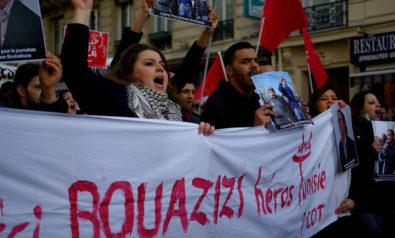
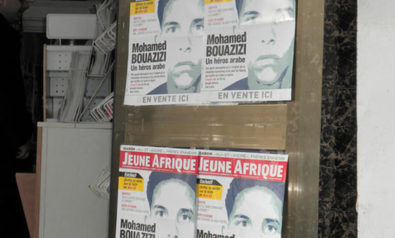
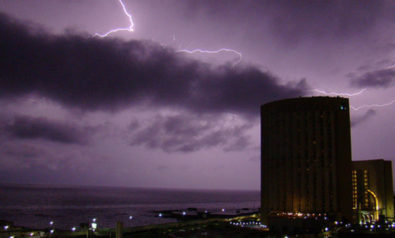
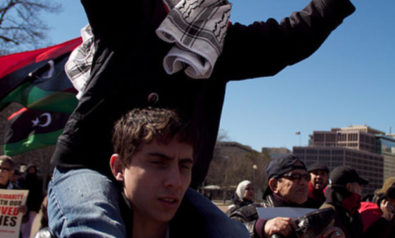
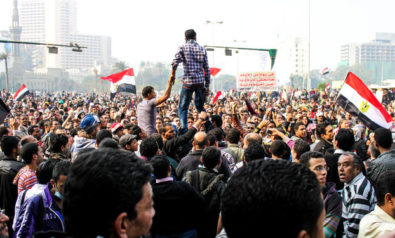
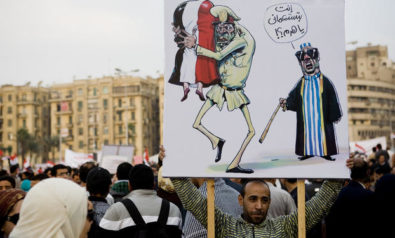
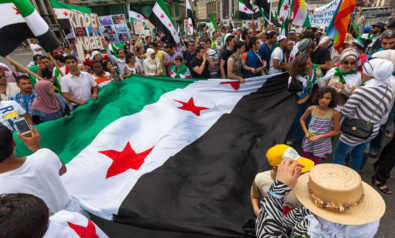
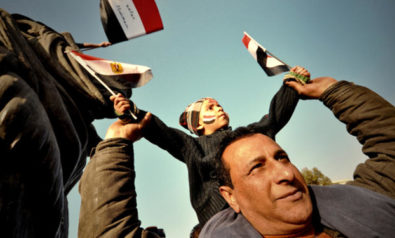

Comment